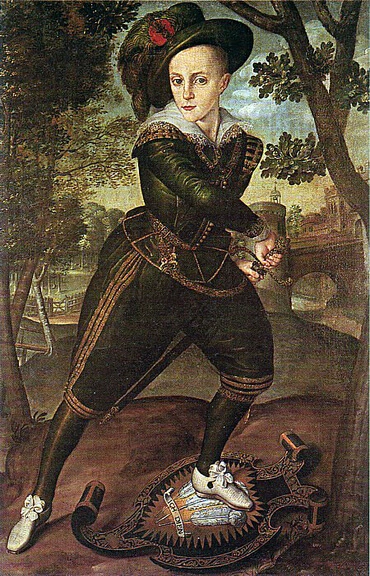1
And the sons of Aaron, Nadab and Abihu, take each his censer, and put in them fire, and put on it perfume, and bring near before Jehovah strange fire, which He hath not commanded them;
2
and fire goeth out from before Jehovah, and consumeth them, and they die before Jehovah.
3
And Moses saith unto Aaron, `It [is] that which Jehovah hath spoken, saying, By those drawing near to Me I am sanctified, and in the face of all the people I am honoured;' and Aaron is silent.
4
And Moses calleth unto Mishael and unto Elzaphan, sons of Uzziel, uncle of Aaron, and saith unto them, `Come near, bear your brethren from the front of the sanctuary unto the outside of the camp;'
5
and they come near, and bear them in their coats unto the outside of the camp, as Moses hath spoken.
6
And Moses saith unto Aaron, and to Eleazar, and to Ithamar his sons, `Your heads ye do not uncover, and your garments ye do not rend, that ye die not, and on all the company He be wroth; as to your brethren, the whole house of Israel, they bewail the burning which Jehovah hath kindled;
7
and from the opening of the tent of meeting ye do not go out, lest ye die, for the anointing oil of Jehovah [is] upon you;' and they do according to the word of Moses.
8
And Jehovah speaketh unto Aaron, saying,
9
`Wine and strong drink thou dost not drink, thou, and thy sons with thee, in your going in unto the tent of meeting, and ye die not -- a statute age-during to your generations;
10
so as to make a separation between the holy and the common, and between the unclean and the pure;
11
and to teach the sons of Israel all the statutes which Jehovah hath spoken unto them by the hand of Moses.'
12
And Moses speaketh unto Aaron, and unto Eleazar, and unto Ithamar his sons, who are left, `Take ye the present that is left from the fire-offerings of Jehovah, and eat it unleavened near the altar, for it [is] most holy,
13
and ye have eaten it in the holy place, for it [is] thy portion, and the portion of thy sons, from the fire-offerings of Jehovah; for so I have been commanded.
14
`And the breast of the wave-offering, and the leg of the heave-offering, ye do eat in a clean place, thou, and thy sons, and thy daughters with thee; for thy portion and the portion of thy sons they have been given, out of the sacrifices of peace-offerings of the sons of Israel;
15
the leg of the heave-offering, and breast of the wave-offering, besides fire-offerings of the fat, they do bring in to wave a wave-offering before Jehovah, and it hath been to thee, and to thy sons with thee, by a statute age-during, as Jehovah hath commanded.'
16
And the goat of the sin-offering hath Moses diligently sought, and lo, it is burnt, and he is wroth against Eleazar, and against Ithamar, sons of Aaron, who are left, saying,
17
`Wherefore have ye not eaten the sin-offering in the holy place, for it [is] most holy -- and it He hath given to you to take away the iniquity of the company, to make atonement for them before Jehovah?
18
lo, its blood hath not been brought in unto the holy place within; eating ye do eat it in the holy place, as I have commanded.'
19
And Aaron speaketh unto Moses, `Lo, to-day they have brought near their sin-offering and their burnt-offering before Jehovah; and [things] like these meet me, yet I have eaten a sin-offering to-day; is it good in the eyes of Jehovah?'







